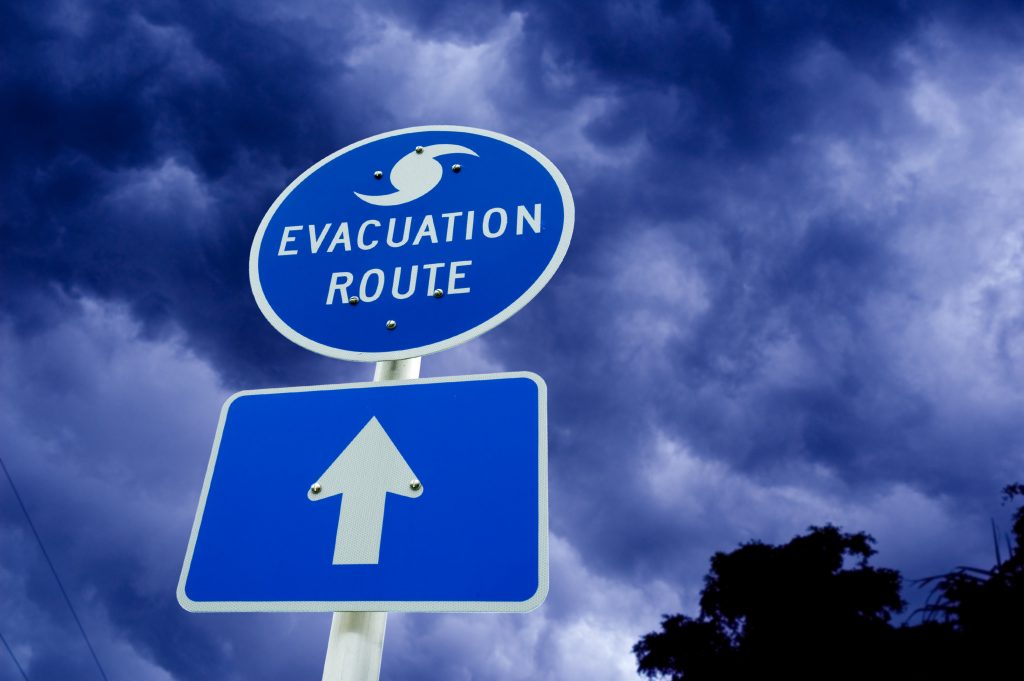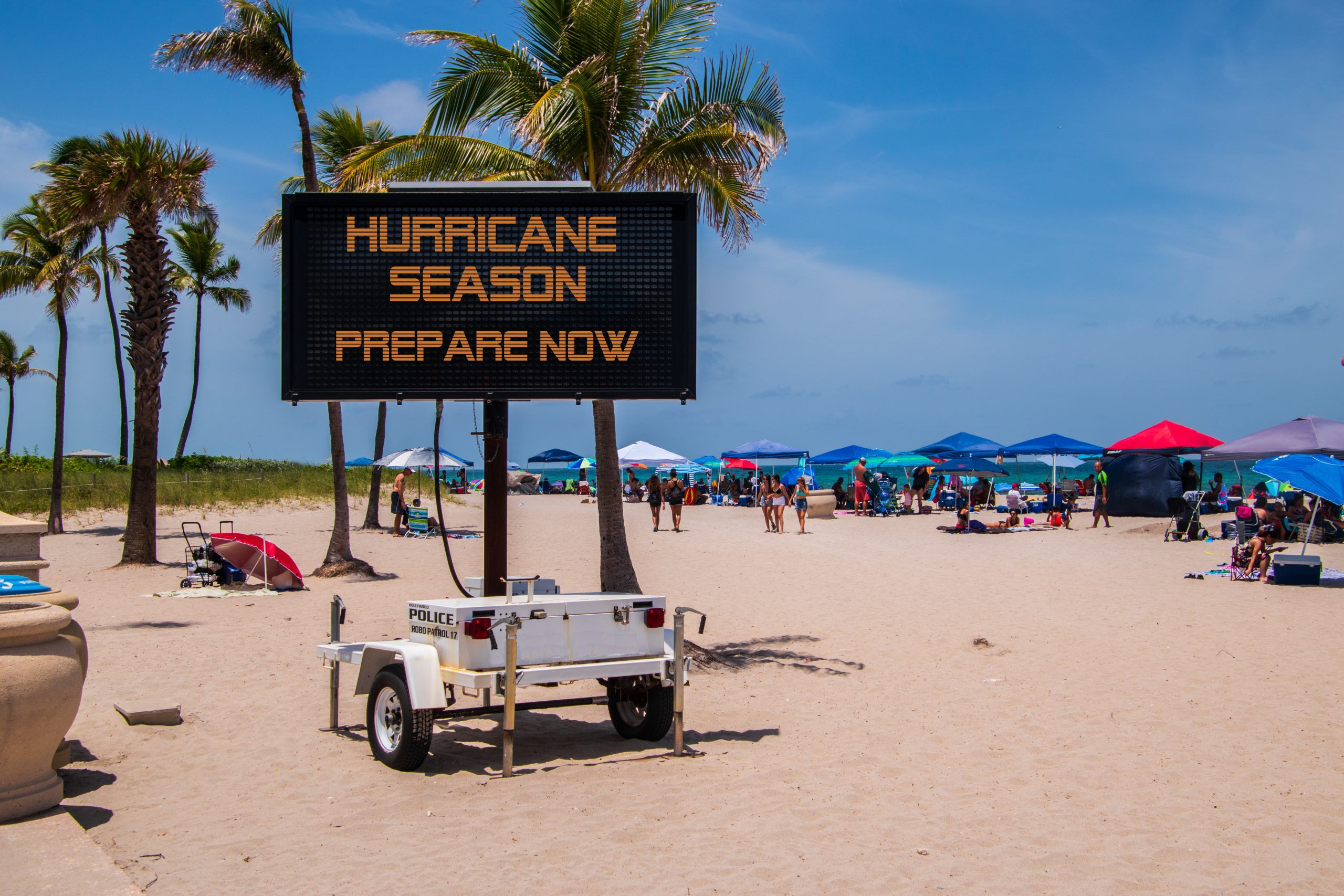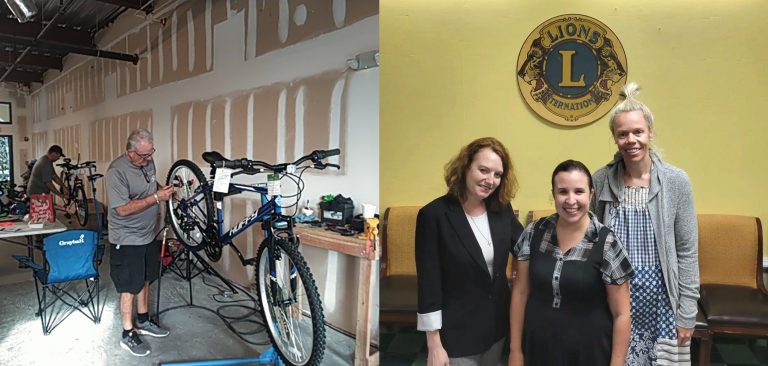Preparedness Is Key to Continuity for Florida’s Small Businesses

When disasters occur, officials focus primarily on the safety and well-being of human life, ensuring the most basic necessities of survival are met through their emergency preparedness plans. Post-disaster, communities are mobilizing to rapidly return essential businesses to operation. Corporations with resiliency plans have protocols in place that ensure this can happen quickly and efficiently, but what about the small business community?
According to FEMA, the Federal Emergency Management Agency, a staggering 40% of businesses do not reopen after a disaster, and 25% will fail within the first year. According to the U.S. Small Business Administration, 90% will fail within two years of being struck by a disaster.
With these kinds of statistics, what can and should a business do beforehand to give themselves a better chance of survival?
Assess Your Business, Create a Plan
Having a continuity plan can be the difference between reopening or closing your company’s doors forever.
In partnership with the state and local municipalities, the Northeast Florida Regional Council (NEFRC) offers Resiliency Continuity Workshops to help small business owners prepare for disasters, using the Federal Emergency Management Agency’s Toolkit as a template for planning: https://www.ready.gov/business-continuity-plan.
Not just at the local level, in preparation for a disaster, planning takes place at the macro level to sustain a region or state’s economic vitality.
In response to the unprecedented global pandemic, the Northeast Florida COVID-19 Economic Recovery Plan was created in May 2021, with a focus area on small business relief, said Margo Moehring, executive director for the Regional Community Institute of Northeast Florida, Inc.
“This approach was, in turn, incorporated into the Northeast Florida Comprehensive Economic Development Strategy 2022-2027, which guides Northeast Florida as an EDA-designated economic development district,” she said.
Government agencies also work to help strengthen communities against natural disasters before they occur.
Flagler, Clay, Putnam and St. Johns counties, along with the municipalities of Orange Park, Neptune Beach, Jacksonville Beach, Jacksonville, Flagler Beach, Fernandina Beach and the City of St. Augustine, are currently working on Vulnerability Assessments in cooperation with the Florida Department of Environmental Protection’s Resilient Florida program.
“Flagler County is currently in the process of developing a work plan for its Vulnerability Assessment. I think after that is complete, we will have a better idea of what annual checkups may be needed to improve resiliency and continuity,” said NEFRC Regional Resiliency Manager Fara Ilami.
Responsible Business Ownership Includes Checkups
At the ground level, it’s more than just developing a continuity plan that will help a business recover more quickly, according to Margaret Cirrilo, senior small business consultant (St. Johns County) for the Small Business Development Center at the University of North Florida.
Since the pandemic started, the SBDC at UNF has spent 8,313 hours helping more than 550 clients capture almost $4.5M in capital and experts say keeping records and plans current is critical when it’s time to execute.

“Businesses need to regularly backup their recordkeeping and financial files, update their business continuity plan to be able to quickly pivot in times of turmoil and ensure their employees’ morale and productivity,” recommends Cirrilo.
Working closely with seasoned business owners and newly established operators to access relief funding after the hurricanes and COVID presented challenges for those unprepared, said Cirrilo.
“If the business had its continuity plan and financials in order, they were better able to weather the storm, regardless of the age of the business. Depending on the type of funding – state or federal, it was difficult for anyone who was not prepared with updated records, in addition to the volume of requests,” she said.

Disaster Strikes. Now What?
When faced with overcoming a declared disaster, the U.S. Small Business Administration is among the responding agencies for business owners.
Providing low-interest loans to address small business physical damage needs such as repairs and replacement, mitigation or operating costs and economic injury disaster loans helping small businesses, agricultural cooperatives and nonprofits, the SBA is the boots on the ground agency helping navigate the economic recovery for communities across America.

“SBA disaster loans for Hurricane Ian in Florida are available to homeowners, renters, businesses and nonprofit organizations with uninsured or underinsured losses. SBA disaster loans are for privately owned property losses and economic injury, not damages to publicly owned property or assistance to state and local governments (public assistance),” said Alejandro Contreras, director of the Office of Preparedness, Communication and Coordination, U.S. Small Business Administration in Washington D.C.
“Whether new or old, businesses that prepare for disasters are typically more resilient and recover faster. Please see our information on preparedness at SBA.gov/prepare for small business tips.”

“We recently surpassed $1 billion in loan approvals for Hurricane Ian,” he said in early December 2022.
“The SBA is a resource for small businesses in all stages of their business. We are here, along with our large network of partners, to ensure businesses have the long-term support they need. We encourage our businesses to contact the local district office to discuss the needs of their business at (904) 443-1900 or at www.sba.gov/northflorida,” stated J. Malcolm Richards, SBA North Florida District Director.
The State of Florida also works closely with the private business community to provide a number of avenues for restarting and rebuilding the state’s small business economy after a disaster.

From emergency small business bridge loans to disaster unemployment assistance and the Rebuild Florida Business Loan Fund, a list of disaster assistance resources compiled by Enterprise Florida provides small business owners with a comprehensive, easy-to-use toolkit for starting the recovery process: https://www.enterpriseflorida.com/disaster-assistance.
“Having an up-to-date continuity plan is critical for all businesses,” said Jonathan Lord, Director of Emergency Management for Flagler County.
“Being prepared for disasters year-round will ensure that a business is able to navigate the impacts of a disaster efficiently and effectively, whether it be a hurricane or even a pandemic. As uncomfortable as it may be, it is important to take time now to talk about potential emergencies and disasters.”










